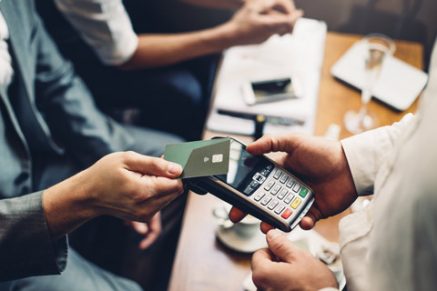
10 Strategies for Avoiding Credit Card Debt and Preserving Your Equifax Credit Report
In short
- Stop using credit cards. Use debit cards instead.
- Review your budget and cut certain expenses.
- Apply the “snowball” or “avalanche” method.
- Repay more than the minimum payment.
- Negotiate a better interest rate with your bank.
- Give yourself a deadline and draw up a payment schedule.
- Schedule automated payments.
- Take advantage of credit card promotions.
- Consolidate your debt into a single loan.
- Consult a licensed insolvency trustee: our professionals are in the best position to help you!
Yes, it’s true, credit cards are very practical in everyday life, because they’re always on hand and enable us to buy what we want in a matter of seconds. But they’re also the best way to get into debt quickly if not used properly. Their interest rates are very high, often around 20%.
If you are unable to repay the full balance of your purchases each month, you could quickly get caught in the vicious cycle of over-indebtedness. Not to mention that all your late or missed payments will have a negative impact on your credit record.
Obviously, the current climate isn’t helping and, according to an Equifax study (French only), more and more people are increasing their credit card balances. If you’ve got into debt using credit, you’re not alone!
Fortunately, while reducing credit card debt may seem like a huge challenge, it’s not insurmountable. Here are a few tips to help you avoid them or eliminate them gradually, so you can get off to a better start!
Stop using your credit cards
Credit cards encourage impulse buying, especially if they are pre-registered with sites you use often. To avoid increasing your balance by being tempted by yet another little dress or the latest techno gadget, the best thing to do is to not use them at all. Instead, opt for debit cards. That way, you’ll learn to spend within your means.
However, avoid cancelling your cards, as this could have a negative impact on your credit rating. You can obtain a copy of your credit file free of charge. Simply fill in the form on www.equifax.ca or www.transunion.ca. Your file will then be sent to you by post.
Review your budget
Drawing up a budget enables you to review your expenditure and income. You can then make an informed decision to cut certain expenses (restaurants, outings, non-essential subscriptions, clothing, tobacco, etc.). Our tips for overcoming inflation will help you make the right choices.
With these savings, you’ll be able to put extra money towards paying off your credit card debt. To help you budget, use the calculator on our website.
Apply the “snowball” or “avalanche” method
There are two strategies for paying off your debts more quickly: the “snowball” method and the “avalanche” method. We talked about them at length in this article.
One is to pay off accounts with the lowest balances first; the other, those with the highest interest rates. By using one of these two methods, you can get out of debt faster.
Repay more than the minimum payment
If you only repay the minimum payment on your credit card each month, you’ll end up paying a lot more interest on your purchases in the long run. What’s more, not paying off your cards on time and in full will damage your credit rating. The longer your delays, the more it will be reflected in your score.
By reviewing your budget as mentioned above, you can better allocate your income to pay off your debt more quickly. Also, as soon as you have a spare $50 or if you come into some unexpected money (a bonus, a gift or whatever), take advantage of this to pay off a little more of your debt. If you can, consider taking on a little extra work to round out the month.
Negotiate a better interest rate
Don’t hesitate to contact your bank and ask them to lower the interest rate on your credit card. As competition between suppliers is very fierce, they may agree to do you a favour so that you don’t go elsewhere.
Give yourself a deadline
When you review your budget, set yourself a target date by which you will have finished paying off your debts. Obviously, be realistic and don’t put too much pressure on yourself. Then draw up a payment schedule to reach that target.
Schedule automated payments
Then schedule automated payments to pay off your credit card debts each month. This will force you to pay on time and not spend all the money you have in your account.
Take out a credit card with no annual fee
If you decide to continue using a credit card anyway, choose the one that offers the most advantages.
- For example, many credit cards are being promoted and offered with no annual fee or at 0% for the first 6 or 12 months. Take advantage of these deals and transfer the balances on your high-rate cards to a low-rate card. However, be aware that at the end of the promotional period, the normal rate will apply.
- Some credit cards also offer a cashback rewards program, which can be worthwhile. Compare offers and take the most advantageous one!
Consolidate your debts
Debt consolidation involves combining all your debts into a single loan to reduce your overall interest rate and pay off your debt faster. Ask your financial institution for advice.
Seek the assistance of a licensed insolvency trustee
If, despite all this advice, you are unable to pay off your credit card debt within a reasonable time, don’t wait to get professional help. Our licensed insolvency trustees are in the best position to help you. They will help you find the best solution, whether it’s filing a consumer proposal or personal bankruptcy.
Have you accumulated debt? Don’t hesitate to contact one of our counsellors in financial recovery. They’ll help you reduce or eliminate your debt.
Regain control on your finances
Put a stop to your money problems and stress. Our counsellors are here to help find the best solution for you. Consultation is free and confidential.


